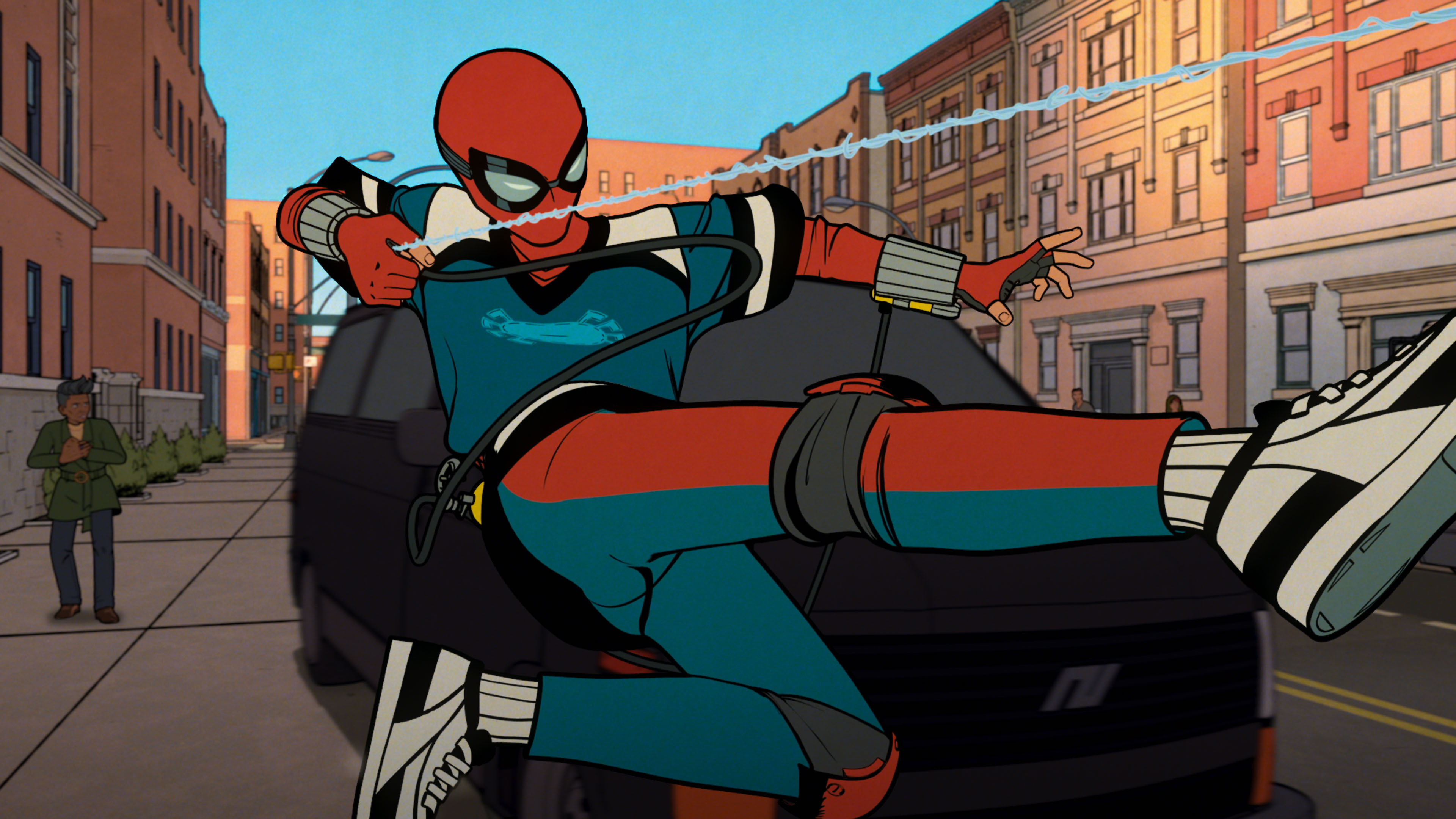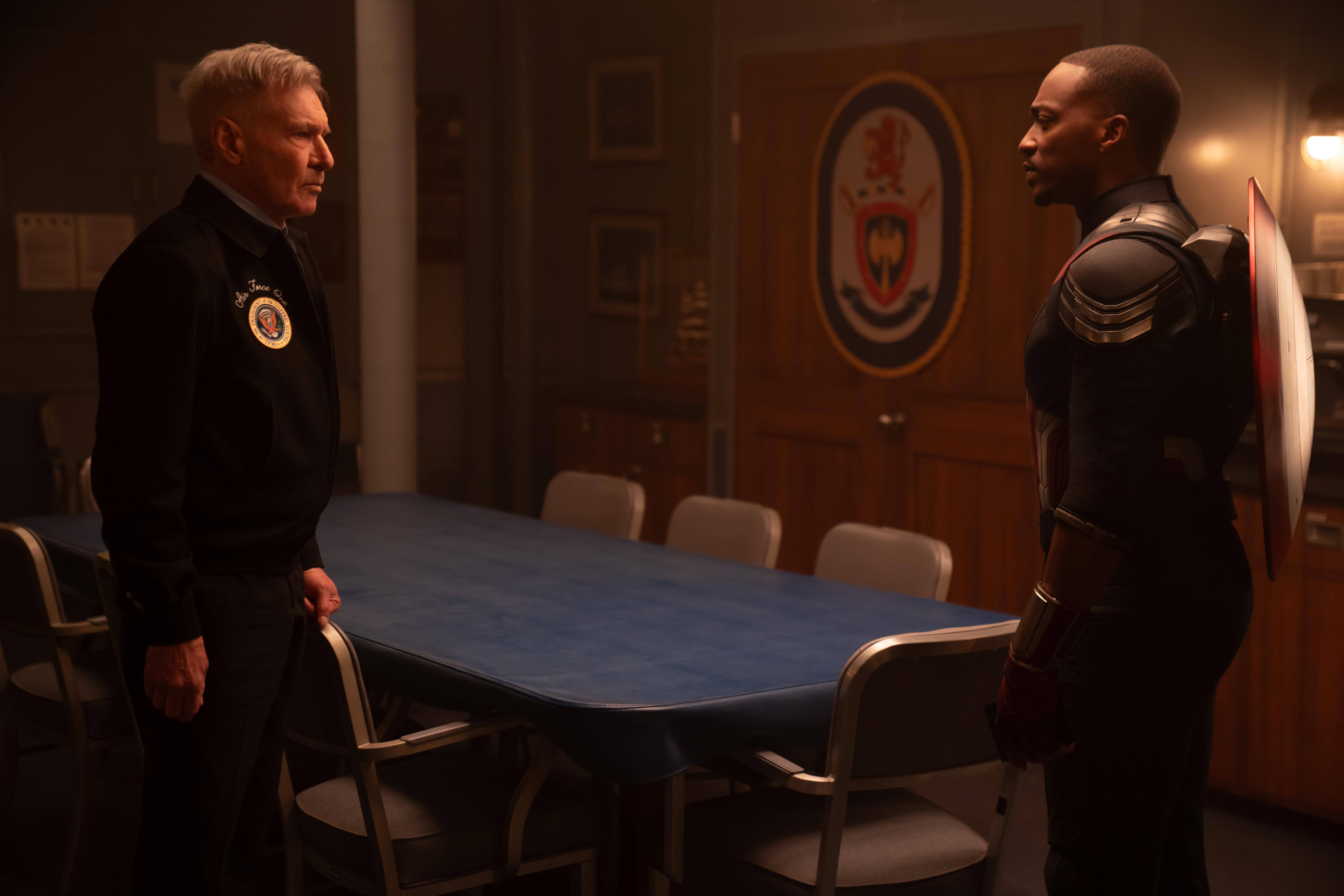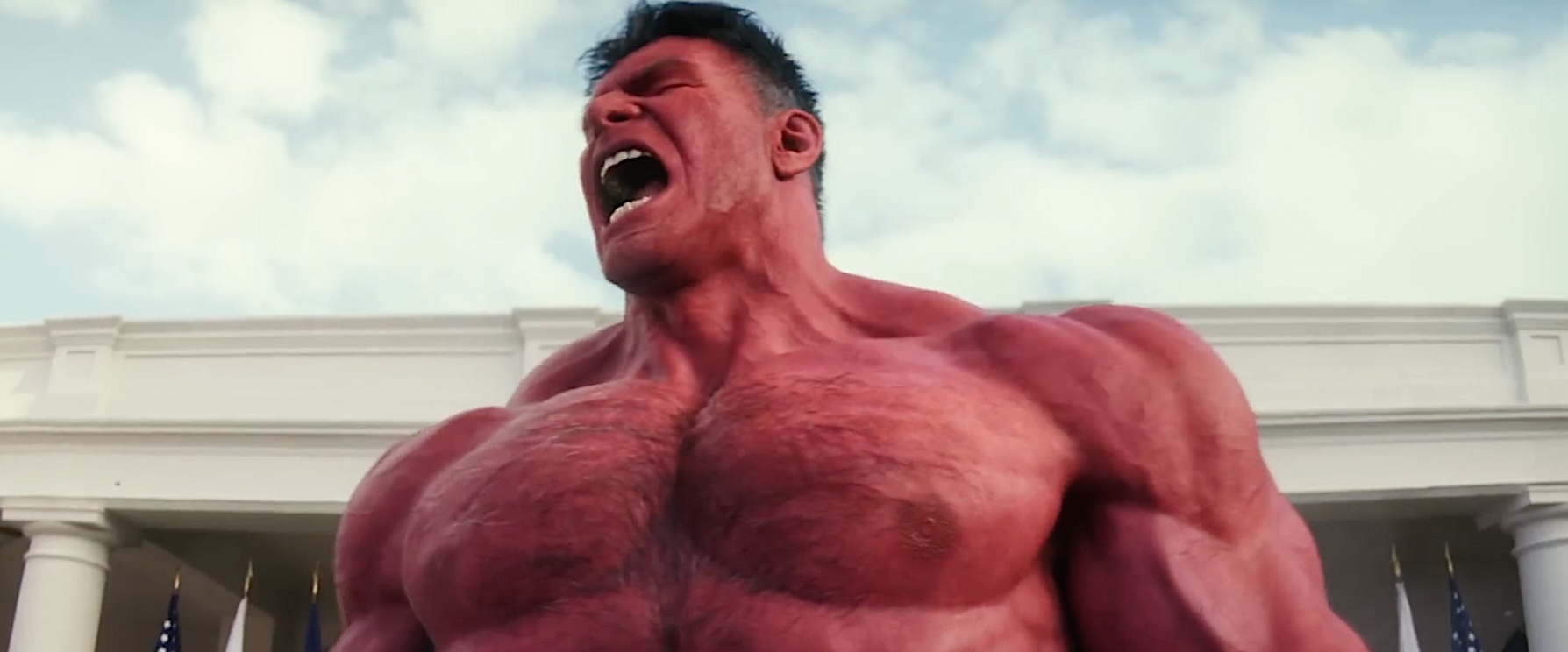There is a moment in Gen V, the Gen Z-centric spinoff of X-rated superhero satire The Boys, that actually managed to shock me. I’m going to talk about what that moment was, but first I need to talk a little about what it wasn’t.
It was not the moment, about two minutes into the opening episode, when a girl experiencing her first period manages to accidentally kill both of her parents with telekinetically weaponized menstrual blood. That sequence, which serves as our introduction to the show’s protagonist, Marie Moreau (Jaz Sinclair), is altogether typical of the tone and attitude of the Boys universe: a smiling, Grand Guignol glee in the parodic violence of the superhero genre that winks at the audience even as it nauseates us. That, after all, is the place The Boys has staked out in the landscape of superhero media. When Amazon launched the show in 2019, it was at the high watermark of superhero media saturation: the year of Captain Marvel, Avengers: Endgame, Shazam!, Spider-Man: Far From Home, and an almost nauseatingly endless list of franchise films slated and imagined. In that environment, the foul-mouthed, cynical spit-take of Eric Kripke’s show — which imagined “supes” as half-witted, media-obsessed stooges of the Vought International corporation — could only feel like a welcome relief.
But 2019 seems a world away now. In the wake of the COVID-19 pandemic, changing tastes, and an almost improbable degree of genre oversaturation, the past year has given us one dud after another that struggled to get audiences even to glace momentarily upward from our phones — whether it was the catastrophic performance of DC’s The Flash or the hollow, empty streaming network thud of Marvel’s Secret Invasion. Against that backdrop, Gen V’s joke ought to feel played out at best and pointlessly mean-spirited at worst, and to some extent it is. And yet, for all its predictable elements, Gen V remains perplexingly engaging television, and it’s worth asking ourselves just why that is. Because with Gen V, a franchise that began as little more than a pleasingly obscene pastiche of superhero fiction proves itself to be more alive to pop culture, and willing to embrace it, than the genre it set out to lampoon. And maybe by understanding what it is about Gen V that still feels alive, we can understand how best to rescue the rest of superhero media from the brink of death.
[Ed. note: This post contains light spoilers for the first few episodes of Gen V.]
:no_upscale()/cdn.vox-cdn.com/uploads/chorus_asset/file/24944930/BYSO_S1_UT_101_220513_PALBRO_00475RC3_1__3000.jpg)
So, to return to Marie, whose salvation from a life of shame and poverty is admission to the prestigious Godolkin University, a training ground for the nation’s supe elite. In practice, this turns out to mostly mean low-rent microcelebs with telegenic superpowers: soap opera actors, brand ambassadors, TikTok influencers, and the like. But a rarefied handful make it through the school’s crime fighting program to become genuine, certified superheroes — even members of elite team The Seven. This is the entirely unrealistic goal to which Marie aspires.
That sets up the show’s premise, which follows Marie alongside her classmates as they attempt to navigate the school’s cutthroat social environment, and it sets up this show’s first clear distinction from its predecessor: These kids, by and large, just don’t have what it takes. The Boys is a show about muscular ego and genetically enhanced social domination — the big dogs who know just how big they are, duking it out to lord over a world that loves them.
That’s where the kids of Gen V want to be, but it’s clear from the get-go that the vast majority will never make it. They’re too vulnerable, too needy, too desperately eager to break free from the constricted worlds they come from — whether it’s metal bender Andre’s (Chance Perdomo) reticence to match the performance of his superpowered parents, shrinking YouTube star Emma’s (Lizze Broadway) pressure from her overbearing stage mom, or Marie’s desperate fear of falling back into poverty and the specter of prison. The supes of Gen V are running desperately to get away from their pasts, and every single one of them knows it. The one Godolkin U student who does directly evoke The Boys, the aptly named and administratively coddled Golden Boy, is suddenly and startlingly removed from the running by the end of the first episode. Gen V, it’s clear, doesn’t spend much time sympathizing with the overdogs.
The show is, in fact, keenly aware of the reality of class, and this, too, sets it apart from virtually any other piece of cape fiction on the market. The show’s frequent gags about compulsively checking follower stats and filming Twitch videos feel like the laziest sort of Zoomer dunking. But the more it repeats those beats, the clearer it becomes that the characters feel as trapped by the media industrial complex as we do: Emma longs to get off the treadmill of celebrity performance, but she knows that even considering it would be an immediate ticket back to obscurity. Jordan (played alternately by Derek Luh and London Thor) can’t contain their jealousy over Marie’s unearned fame and success, even when they know they ought to know better. Even the school’s steely, hardass Dean Shetty (Shelley Conn) sadly confesses over a few too many drinks that she, too, is at the mercy of Vought’s corporate pressures: Slack one moment in her duty to farm out the students for fundraisers, and Godolkin will have her out on the street.
:no_upscale()/cdn.vox-cdn.com/uploads/chorus_asset/file/24944942/BYSO_S1_UT_101_220601_PALBRO_00277RC_3000.jpg)
:no_upscale()/cdn.vox-cdn.com/uploads/chorus_asset/file/24944958/BYSO_S1_UT_101_220503_PALBRO_00018RC3_f_3000.jpg)
That’s not to say that Gen V is necessarily good TV, or that it even wants to be. The psychological traumas that a life of superpowers has inflicted on each of the characters is handled with approximately the same subtlety and nuance as an early-2000s CW teen drama. Each of the kids has a power that conveniently serves as a handy metaphor for some universal element of puberty or adolescent trauma: Marie’s murderous power manifestation is, of course, a dramatized nightmare of a first period. Emma’s shrinking is powered by a compulsive need to vomit — a behavior she repeatedly, and unconvincingly, denies is an eating disorder. Jordan’s power as a (literal) gender-bender actualizes trans and genderfluid identities. And so on, in ways that make the term “on the nose” seem anatomically subtle.
Indeed, Gen V owes as much to Gossip Girl or Riverdale (or even the untouchably soapy majesty of Cruel Intentions) as it does to The Avengers. But that lowbrow cultural debt feels oddly refreshing: Gen V is drawing from other culturally influential genre sources beyond the superhero ecosystem in a way that most other cape flicks have largely given up on. In 2008, Iron Man could cite as its inspirations 1980s action films and early-’90s slacker comedies. By 2023, the most obvious influence for Ant-Man and the Wasp: Quantumania seemed to be… Ant-Man. Rather than feeling trapped by its own self-referential franchise obligations, Gen V sidesteps them in favor of other, equally trashy sources. And in a curious way, that actually gets the show closer to the tone and effect of the superhero media that ostensibly inspired the show in the first place: the Legion of Super-Heroes or the Chris Claremont’s X-Men, ur-texts of the superhuman teen genre, which used powers as devices to explore relatable high school and college turmoil. By breaking away from the conventions of its genre, Gen V is getting closer to its roots.
Which takes us back to that shocking moment I mentioned earlier. It isn’t any of the show’s spattered viscera, or exploding phalluses, or creatively vulgar exclamations that would make the characters on Deadwood take pause. It’s a scene, midway through the fifth episode, when two characters tenderly and affectionately sleep together. It isn’t funny, and it isn’t salacious; it’s just raw and honest, and, in its own way, more sex positive than most teen dramas that have come out in my lifetime. It’s also briefly, blissfully free of irony, self-awareness, or the burdens of genre satire. We have come full circle in our journey through superhero media, and arrived right back where we started: at something perfectly vulnerable and human.
:no_upscale()/cdn.vox-cdn.com/uploads/chorus_asset/file/24944952/BYSO_S1_UT_101_220610_PALBRO_00098RC2_f_3000.jpg)
And come to think of it, that’s the arc of every classic superhero, teen or grown-up alike, from Spider-Man onward. Learning to choose truth and do the right thing, even when every pressure from society urges you toward self-aggrandizement and cynicism, is what makes a supe into a superhero —that’s something new for The Boys, and it’s something everyone else seems to have deliberately forgotten in the name of IP maximization and test-marketed screenplays. One of the Gen V kids sums it up effectively later in the season: “That’s shitty. I hate to see it… But right now you have a choice. You finally have a choice. So wake the fuck up!” Somehow, improbably, the Boys franchise is surviving by reinventing the same building blocks the superhero genre started with.
Having only seen six of eight episodes, I wouldn’t be at all surprised to see these stabs at sincerity and heroism go due south in the end; this is a show based on a Garth Ennis universe. But even if it does, it’s been fun to watch this show imperfectly, and maybe even in spite of itself, find something about superheroes that still feels worth holding on to. Lose sight of that, and our next piece of cape fiction might as well be manufactured by Vought.
The first three episodes of Gen V are now streaming on Prime Video. New episodes are released every Friday.








